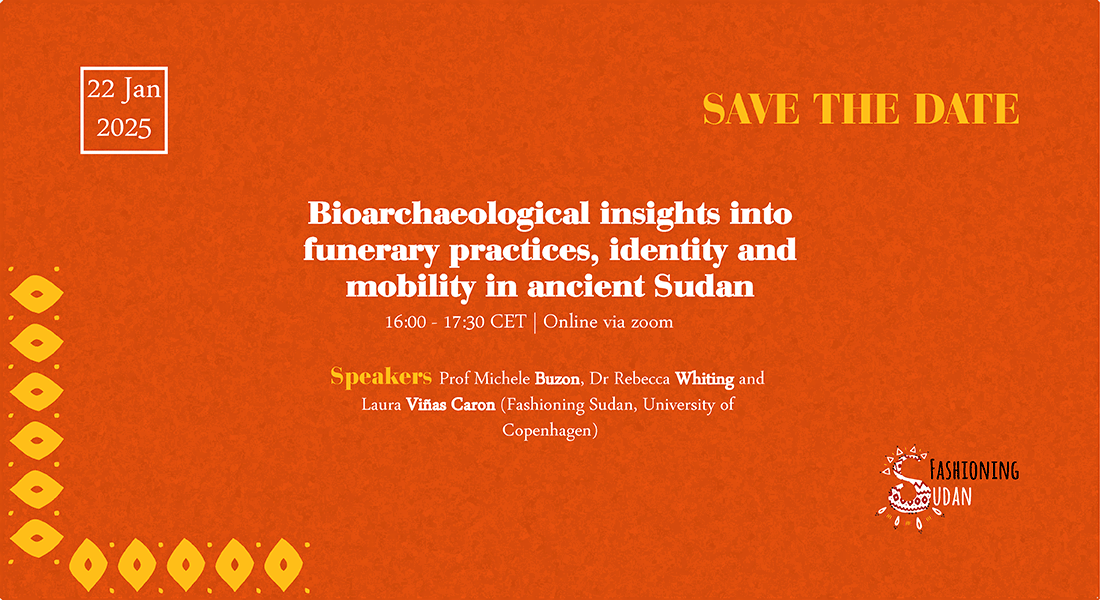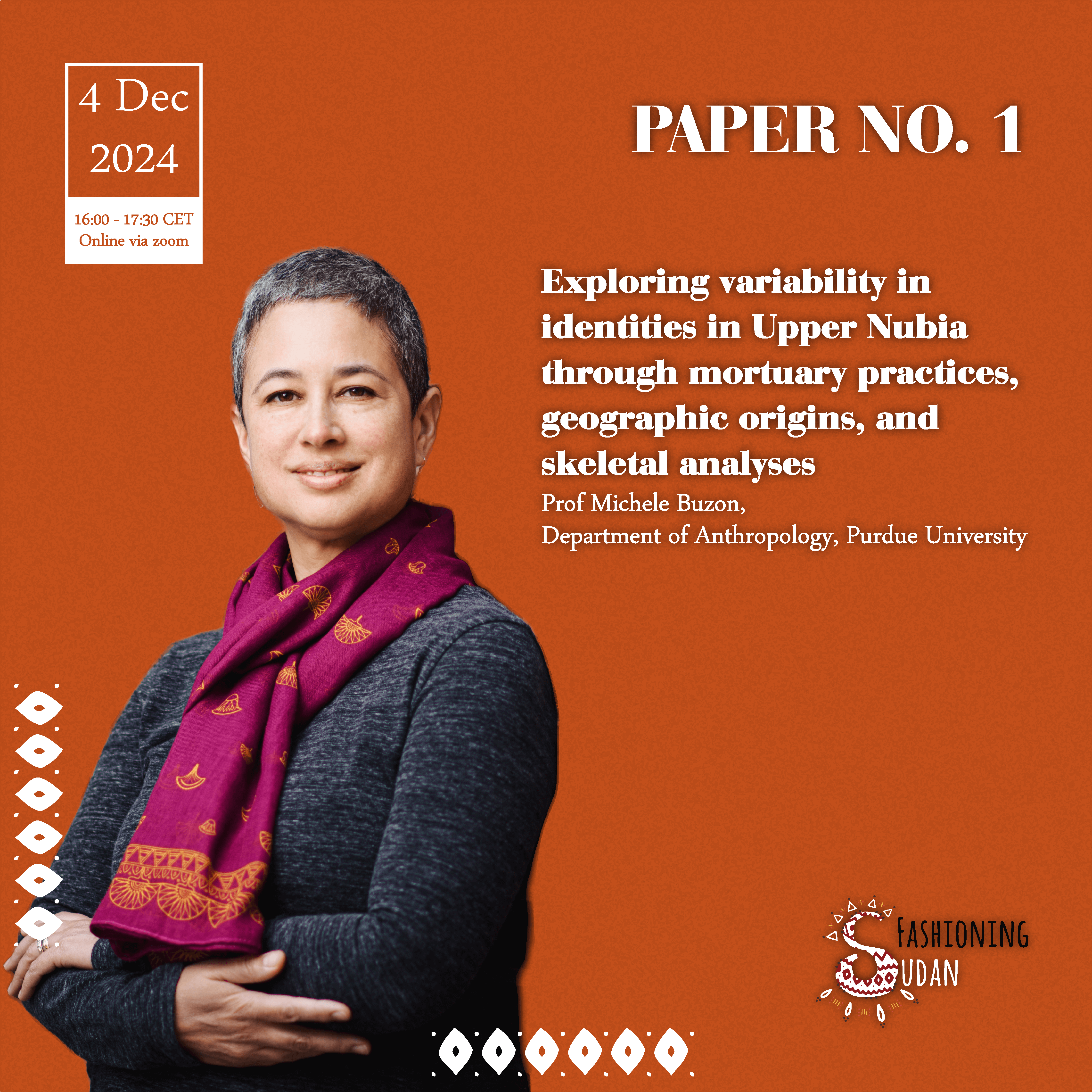Bioarchaeological insights into funerary practices, identity and mobility in ancient Sudan
The theme for this seminar will be explored through two lectures by Prof. Michelle Buzon (Purdue University) and Rebecca Whiting (British Museum).

Programme
| 16:00 - 16:30 | Prof Michele Buzon, Department of Anthropology, Purdue University: Exploring variability in identities in Upper Nubia through mortuary practices, geographic origins, and skeletal analyses |
| 16:30 - 17:00 | Dr Rebecca Whiting, Curator: Bioarchaeology, The British Museum: Recent insights into ancient Sudanese identity and mobility – Bioarchaeological research from British Museum collections |
| 17:00 - 17:30 | Discussion led by Laura Viñas Caron (Fashioning Sudan, University of Copenhagen) |
Exploring variability in identities in Upper Nubia through mortuary practices, geographic origins, and skeletal analyses
Prof Michele Buzon, Department of Anthropology, Purdue University.
 This seminar will present integrative bioarchaeological research that focuses on combining different types of data to explore identity variability in Upper Nubia during times of sociopolitical and cultural changes. Transitions in mortuary practices are examined in conjunction with isotopic analyses of geographic origins as well as various skeletal analyses that provide insights into daily life. Through this intersectional approach, community composition and innovations are revealed.
This seminar will present integrative bioarchaeological research that focuses on combining different types of data to explore identity variability in Upper Nubia during times of sociopolitical and cultural changes. Transitions in mortuary practices are examined in conjunction with isotopic analyses of geographic origins as well as various skeletal analyses that provide insights into daily life. Through this intersectional approach, community composition and innovations are revealed.
Recent insights into ancient Sudanese identity and mobility – Bioarchaeological research from British Museum collections
Dr Rebecca Whiting, Curator: Bioarchaeology, The British Museum.
 Human remains can provide insights into past people and groups that cannot be gained from other archaeological sources. The British Museum cares for a large collection of ancient Sudanese human remains which were generously donated by Sudan’s National Corporation of Antiquities and Museums. This talk will explore some recent research into these individuals, including studies of dental morphology looking into population affinity and the movement of people throughout the Nile Valley; unusual dental wear which hints at occupational practices and oral hygiene; body adornment and tattooing in Medieval Sudan; a study of culinary practices in Medieval Sudan, combining dental, ceramic, archaeobotanical and ethnographic data; as well as occupational residues trapped in dental calculus. Along with the analyses conducted as part of the Fashioning Sudan Project, these studies are revealing the potential of bioarchaeological research to feed into a holistic approach of building a picture of the past people of ancient Sudan.
Human remains can provide insights into past people and groups that cannot be gained from other archaeological sources. The British Museum cares for a large collection of ancient Sudanese human remains which were generously donated by Sudan’s National Corporation of Antiquities and Museums. This talk will explore some recent research into these individuals, including studies of dental morphology looking into population affinity and the movement of people throughout the Nile Valley; unusual dental wear which hints at occupational practices and oral hygiene; body adornment and tattooing in Medieval Sudan; a study of culinary practices in Medieval Sudan, combining dental, ceramic, archaeobotanical and ethnographic data; as well as occupational residues trapped in dental calculus. Along with the analyses conducted as part of the Fashioning Sudan Project, these studies are revealing the potential of bioarchaeological research to feed into a holistic approach of building a picture of the past people of ancient Sudan.
Free registration.
Funded by the European Union (ERC Fashioning Sudan, 101039416). Views and opinions expressed are however those of the author(s) and do not necessarily reflect those of the European Union or the European Research Concil. Neithrer the European Union not the granting authority can be held responsible for them.
